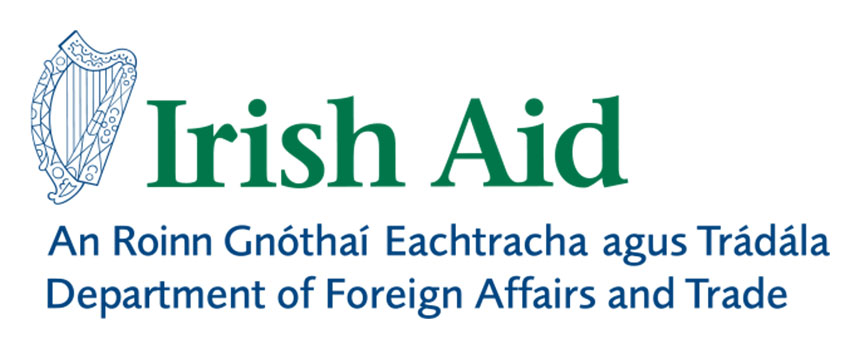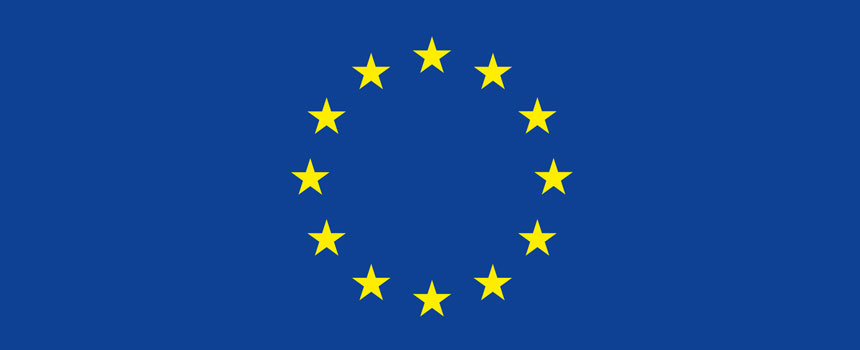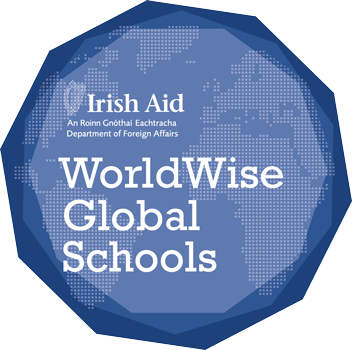Tweets for Debt Justice during IMF Washington Meetings
14 October 2013

Tweets for Debt justice During IMF Washington Meetings
By Nessa Ní Chasaide, Debt and Development Coalition Ireland
12th October
As the world's most powerful lenders gather in Washington this weekend for the Annual World Bank-IMF meetings, justice campaigners from around the globe are sending a hard hitting message, in an unusual way.
It's International 'Not Our Debt' Week, and from Dublin to Sao Paulo, from London to Nairobi, a twitter campaign is emerging using the hastag #NotOurDebt.
The people participating in the #NotOurDebt conversation are finishing a simple statement namely, 'it's not our debt when...'. The responses are diverse. For example, a Kenyan citizen indicates that a debt is not theirs if its proceeds were used to support repression of people in Kenya. A British citizen argues that a debt should not be repaid if 'the many' are forced to pay for the excesses of 'the few'. People in Ireland are adding their voices too, indicating that a debt is not ours if communities cannot pay for it or if it is to repay the reckless debts of bankers.
Unfortunately, this critical debate about the legitimacy, or otherwise, of debts being paid by ordinary people, is not high on the agenda this weekend in Washington.
Debt and Development Coalition Ireland believes that the Irish Government, as a member of the World Bank and IMF, should join with other governments and advocate to put the question of how to achieve international debt justice to the centre of the Washington discussions.
It is possible to change the agenda. For example, on the foot of global campaigning for debt cancellation, the World Bank and IMF grudgingly supported debt cancellation for countries of the global South (Africa, Asia and Latin America) in the 1990s and in 2005. This has so far provided over US$ 120 billion of debt cancellation for global South countries.
However, the nature of these deals have shown us that a long term approach is required to achieve true debt justice. While the debt cancellation deals freed up resources and changed the parameters of the global debt debate, they did not fundamentally address the injustices at the heart of the international debt problem. In fact, due to the deeply unfair debt cancellation agreement processes - which demand repayments of arrears and the implementation of damaging policy conditions - global South countries have continued to live in serious vulnerability and economic crisis.
Indeed, throughout the global South many countries continue to experience high debt distress. Take the example of Pakistan, a country that has been dependent on IMF financing for 32 out of the last 40 years. Pakistan's most recent IMF loan in 2013 will partially go towards paying off previous IMF loans. Pakistan is thus caught in a cycle of debt, while 100 million of its citizens live on less than $1 per day. Many of the loans borrowed over the last 40 years were borrowed by military regimes, for projects that did not benefit citizens, or for disaster relief support following the devastating floods in 2010.
In the face of such unfairness, many global South countries are proposing workable, justice-centered debt solutions that have relevance worldwide. For example, people in Pakistan are campaigning for public debt audits to enable a public debate on which of their debts should, or should not, be repaid, and for tax justice as a way of combating their dependence on external financing and the economic policy conditions that come with that.
The highly indebted small Caribbean island state of Grenada was unable to pay its debts to private creditors by last March and stopped paying. Campaigners there are calling on their government to negotiate directly with its lenders and have proposed a 'debtor-creditor' conference as a means to call all of its creditors together to negotiate a significant debt write-down. In a ground breaking development in Washington this weekend, the Minister for Economic Development in Grenada announced in an open letter, "We will try to balance the legitimate interests of all our creditors with the interest of our country.[..] We are prepared to become pioneers of a new debt-restructuring model that would spare countries from protracted entanglement in the debt trap. Grenada urgently needs debt relief from all its creditors".
These justice-centered solutions are more imaginative in their nature than any proposals coming from the World Bank and IMF. It is therefore high time for borrowing governments, who are members of these undemocratic financial institutions, to follow the example of the Grenada government and stand up for the citizens they represent. The Irish Government must go beyond the totally inadequate Anglo 'promissory note deal' which leaves the full, and illegitimate, Anglo debt intact for people in Ireland to repay. The Anglo debt is not our debt.
And Ireland should work to support the range of grassroots proposals for justice from people in countries of the global South, who are also repaying illegitimate debts, and for far longer than in Europe.
As two Irish children wrote in their #NotOurDebt response this week, 'It's not our debt.... because we weren't even born yet'. It's a message that could equally have been written by children in Pakistan or in Grenada too. The lending and borrowing governments meeting in Washington this weekend have collectively failed previous generations, it's time that they stood up for the current one.
---
@Debt_Ireland urge you to join the #NotOurDebt Week campaign. Post a message on twitter or facebook saying 'It's not our debt because....' And finish the sentence. Even better if you do it through a photo. For more details see http://www.debtireland.org
You can see a selection of the photos at: http://tagboard.com/notourdebt
Nessa Ní Chasaide is coordinator of Debt and Development Coalition Ireland
She tweets from @Debt_Ireland
Morína O' Neill from Debt and Development Coalition Ireland is in Washington at the World Bank IMF meetings.
You can follow her @MorinaONeill


